Check out some books by your tutor Fiona Veitch Smith … (click on the book covers to find out more)
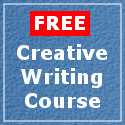 Hello everyone, welcome to the first session of our free online creative writing course. Over the next eight sessions we will be looking at different aspects of creative writing and trying our hand at various forms. I’d strongly encourage you to have a go at the exercises along the way, and please feel free to leave comments or ask questions at the end. If you have arrived on this page without first reading the home page and frequently asked questions page (on tab above) please go back and do so now. If you have read them, enjoy the course!
Hello everyone, welcome to the first session of our free online creative writing course. Over the next eight sessions we will be looking at different aspects of creative writing and trying our hand at various forms. I’d strongly encourage you to have a go at the exercises along the way, and please feel free to leave comments or ask questions at the end. If you have arrived on this page without first reading the home page and frequently asked questions page (on tab above) please go back and do so now. If you have read them, enjoy the course!
Creativity and Art
What is creativity? The Collins dictionary defines it as ‘the ability to cause something to exist’. Without getting into too much of an existential discussion, I would say that with every thought that is expressed, something has been created. It was Descartes who said: ‘I think, therefore I am’; well I would add, ‘I think, therefore I create’ (do you feel a God complex coming on?). But how do we express our thoughts? Sometimes we do it verbally, other times by body language and still again through what is loosely termed ‘art’.
Art takes place when a thought is expressed and fixed in a way that other people may experience it on an aesthetic level – through music, writing, painting, sculpture, choreography and so on. Many artists say that their best work takes place when they ‘by-pass’ the thought and simply express the feeling. This may be true, but for writers, who use a verbal medium, a feeling must first be converted into a thought before it can be put into words. Don’t over analyse the thought before you express it, as this way you can ‘channel’ the purest interpretation of the feeling, but some cognitive process needs to take place. Some writers prefer to mull over a thought and give it form before they put pen to paper – I’m one of them – but it’s good practice to try and switch off the ‘editor’ at least for the first draft. First response trigger exercises are useful in this regard and can release some unexpected words and images.
Exercise 1:
Write down your first response to these words or phrases:
- Blue ball
- And that’s when the sadness came
- Coffee
The first task of a good writer is to convert feelings into thoughts and then into words. This is the raw material that can then be converted into something more permanent. Some writers refuse to toy with their first drafts, believing their creativity will be diluted; I disagree. Allowing your critical mind to improve a piece of writing is where the craftsman meets the artist. Something produced only by the former will lack soul and something by the latter will lack form. Good writing is a combination of art and craft.
For public consumption
Art, of course, is highly subjective and one woman’s masterpiece is another woman’s unmade bed. We all have the ability to create, but whether or not our creation is ‘art’ must be left to the eye or ear of the beholder.
In this session we will look at how you can craft those creative thoughts into creative writing to share with other people. And that’s what sets ‘public’ writing apart from ‘private’ scribblings – there’s a perceived readership in mind. When I ramble on in my journal, I am the only one who will read it (hopefully!) so my only concern is getting my thoughts down on paper. The moment I want someone else to read it I begin to consider ways to improve the presentation and craft it into something more aesthetically pleasing. I consider which words may sound more colourful, whether or not my sentence structure is grammatically correct, whether I’m using evocative imagery, and so on.
Story, feeling or image?
What is it about those creative thoughts that you think might be of interest to other people? Do they speak of an eternal truth or a common experience? Do they make you laugh or cry? Do they suggest a story that will entertain or a poem that captures a moment that must be shared?
Exercise 2: In 50 words or less write down why you want to write then list three creative thoughts that you’ve had lately (each 10 words or less). These may be an image, a musing, a ‘truth’, a story, or so on. If you haven’t had any, take yourself for a walk and look around; what grabs your imagination? Browse through a newspaper or a magazine; do any stories or pictures catch your attention? Think back over your day; did anything funny, charming, shocking or unusual happen to you or someone you know?
Poetry or prose?
Some people are more suited to writing poetry than prose and some people do well at both. Although we won’t be discussing it in this course, other people are more suited to script. I’m one of them. I’ve had relative success as a prose writer and in fact have managed to earn a living from it, but it’s taken years of hard work to get to this point. I recently branched out into scriptwriting and found that I had much more of a natural ability. (If you’re interested in finding out more about scriptwriting, check out getting started in playwrighting). You may find that you’ve been trying to make it as a poet when actually you’re more suited to prose. Now I don’t want to pigeonhole anyone, but ask yourself the following questions:
- Are you more attracted to films than stills?
- Do you enjoy telling people ‘stories’ from your life?
- Do you prefer to read stories or poems?
If yes, to these, then you may be more suited to prose than poetry. If no, then the opposite may be true. If it’s ‘sometimes yes, sometimes no’ then perhaps you are suited to both. We shall be looking at how to write poems in more detail in session 7, but suffice to say, a poem is like a snapshot of a moment. If you can’t rest until you know what happened before and after, then prose may be your genre.
Exercise 3: Take one of the three creative thoughts you wrote down in Exercise 2, then list 20 separate words that communicate or describe that thought. Do not, at this stage, link the words into sentences. Once you have your 20 words use them in a poem of 16 lines or less. Then, take the same 20 words and work them into a short story of under 300 words. Which exercise came more easily? Which form has best communicated your creative thought?
Further Resources:
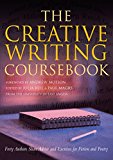
There are some excellent resources out there for creative writers. To get quick ‘starter’ images when your own well is dry I recommend The Writer’s Block by Jason Rekulak. I’m currently working through The Creative Writing Coursebook by Julia Bell and Paul Magrs and finding it very useful.
The next creative writing course session is how to write a short story. But before you move on to that, please feel free to leave a comment or ask a question in the box below.
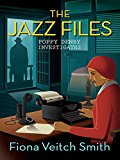
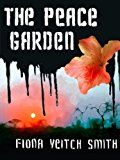
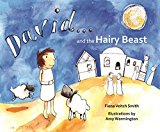
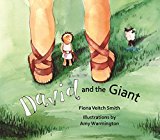
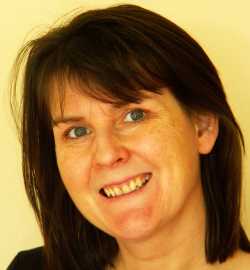 Welcome to The Crafty Writer's free online creative writing course, presented by Fiona Veitch Smith, a freelance journalist, editor, author, playwright, screenwriter and writing teacher. I hope that you'll see a dramatic improvement in the quality of your writing as you work through this course.
Welcome to The Crafty Writer's free online creative writing course, presented by Fiona Veitch Smith, a freelance journalist, editor, author, playwright, screenwriter and writing teacher. I hope that you'll see a dramatic improvement in the quality of your writing as you work through this course.
I wanted to thank you for the exercises. I really appreciate them in respect to getting myself motivated to write.
You’re most welcome, David. Happy writing!
Can you give me ideas?
I’m afraid ideas are something that have to come from inside you. I can teach you ‘technique’ in this course, but I cannot give you ideas.
Ok teach me the technique
This course is the technique Zakria. Just read through it and do the exercises. Good luck.
A million thanks for your blog and these courses Fiona.
You are a gift.
What a lovely thing to say, Maureen. Thank you.
This is a silly question. What is a creative thought?
Hi Robert, it’s simply something that makes you think ‘oooh, I would like to say something about that or creatively respond to that in some way’. Something that may give you the spark to start a story or a poem or a painting…
Thank you for offering this course.
You’re welcome, Sheilah.
Hello,
I just wanted to say that I thoroughly enjoyed the first session of this course. It made me truly think. I can’t wait to continue. Thank you for having a course like this for people like me.
Be Blessed.
You’re most welcome, Rachel. I hope you get as much out of the rest of the course.
I am very interested in your course but I’m new at this, I did write a short children story but I didn’t do anything about it because my self-esteem is low. I’m thankful that you have this course. I hope it helps me to go forward. Also I’m glad it’s free since I’m on disability. Thanks again, Jeannine
You’re welcome, Jeannine. I hope you grow in confidence as you work through the course. Happy writing!
Thank you so much for this course I am so happy with it. Love the exercises makes you really think which is exactly what I needed. God Bless and Happy writing
You’re welcome, Enuel. Happy writing to you too!
For a long time I had been looking for an online course on creative writing. I really liked the first session. Thank you so much for your guidance. Hope to learn further from this course
You’re welcome, Ayesha. I hope you enjoy the rest of the course.
Thank God I found this site… Love my first read.
Excellent! Keep reading – and writing.
No questions as yet; simply “Thanks”.
Thanks for the thanks!
So happy I found your free creative writing course. The first two exercises show that I am equally interested in poetry and prose. I love to write, so much of my thoughts and experiences want to be written out on tape. I am full of ideas and creativeness and those thoughts make so much sense when they are written down. My greatest desire to to share…so that others know and can relate to life experiences along with me both good and bad . All of my life long lessons and experiences took years to unfold….Belinda M. Stoto
I’m glad you’ve found it useful, Belinda.
Thank you for the Course which is useful to the beginners like me. I am so happy to be in your course
You’re most welcome.
I enjoyed the first lesson! The exercises are actually helpful and they got me going. I needed the reassurance that I could do this. I just need to push through and overcome laziness. Thanks a lot!!
Ah, laziness. Something we all know
What exactly do you mean by creative thoughts?
Any idea that makes you want to write or create something. It can be literally anything. But it needs to make you think: hmmm, I might be able to write a poem or story or painting from that.
HI Fionna,
Some excellent insights I got about writing in this session. Enjoyed and felt really awesome.
I’m very pleased to hear that Ashish. I hope you enjoy the rest of the course.
Hello
I think this is a great intro to a writing course. These exercises have already sparked some real creative thinking.
It helped to confirm that my strengths lie in prose, although I really enjoyed the poetry exercise too.
I’ve just finished another online CW course, which was really good, and it’s good that the input and exercises here are very different and equally good.
I’m looking forward to session 2
Great to hear. Happy writing, Andy!
Lesson one has generated some very creative thoughts, which I struggle to put into works e.g. my words seldom seem to capture the magic of the original image – I suppose that’s where editing comes in, to polish the words to that first, exciting image.
I think the blue ball may develop into a poem and I want to write a short story about the changes to a small community when two disruptive people move.
So many thanks for getting my creative juices flowing on this wet June morning.
You’re welcome John. I hope it continues to flow (not the rain!).
Thanks
Thank you so much for this course! I did this first exercise and came to find that getting my thoughts came out easier writing poetry rather than writing prose. I still was able to complete the short story but not as effortlessly as the poem. Im hoping to hone both of these eventually but I definitely see more poetry in my future. Thanks again!
Thank you for this opportunity to gauge my writing skills, and improve self too!